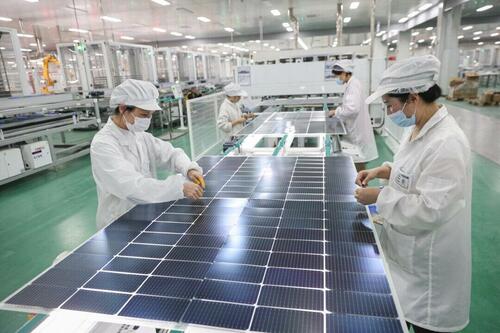China's ambitious green revolution, once seen as a pathway to economic dominance and global leadership, now faces significant challenges. The Chinese Communist Party (CCP) has heavily invested in green technologies, perceiving the Western push for decarbonization as an opportunity to weaken rival economies while bolstering its own. With annual investments soaring to $890 billion in 2023, China has positioned itself as a leader in solar panels, electric vehicles, and lithium-ion batteries, accounting for a substantial portion of global production. However, this reliance on green subsidies, particularly from the U.S., raises concerns about sustainability and the potential fallout if these financial supports wane, especially as scientific scrutiny of climate change narratives grows. The CCP's intertwining of green initiatives with social control mechanisms further complicates the landscape, as urban planning and surveillance technologies are leveraged to enforce compliance with environmental goals.
The implications of shifting U.S. policies under the Trump administration could be profound for China's green ambitions. Recent reports suggest that the scientific basis for aggressive climate policies, including the classification of carbon dioxide as a pollutant, may be fundamentally flawed. If the U.S. repeals the carbon dioxide endangerment finding, the resulting reduction in green subsidies could destabilize China's green economy, which has become increasingly dependent on foreign demand. The potential loss of these subsidies could lead to significant economic repercussions, as evidenced by reports of major solar firms in China shedding a third of their workforces. As the global narrative around climate change evolves, the CCP must navigate these turbulent waters carefully, balancing its green aspirations with the realities of international economic dynamics.







